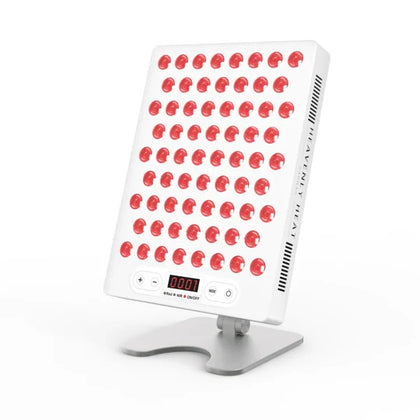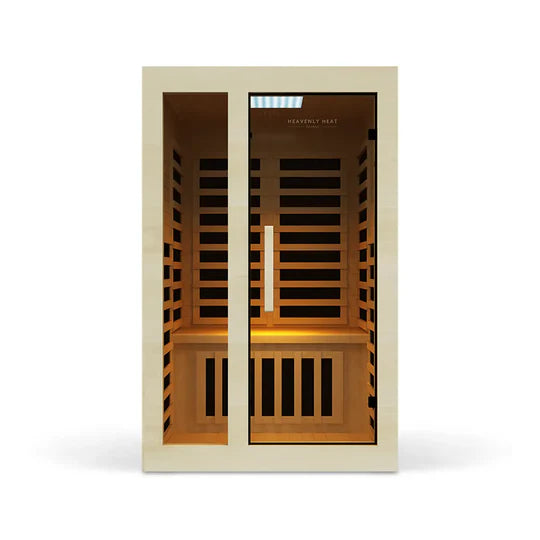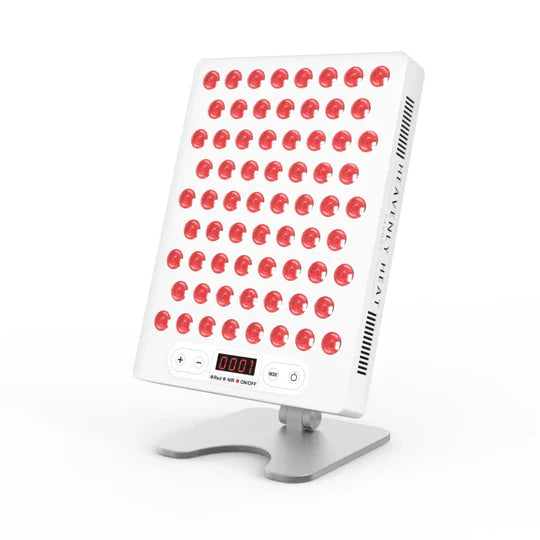Is it Good to Have a Sauna Before Bed?

Table of contents
What are the Effects of Lack of Sleep? Five proven ways a sauna can help you get a better night’s sleep It relieves pain Decrease stress Lower blood pressure Lowers Body Temperature Increased melatonin production Remember – It is Not Safe to Fall Asleep in the Sauna The Perfect Nighttime Routine With a Sauna Is it better to sauna in the morning or night? How long before bed should I sauna? Tips for Maximizing the Benefits of Sauna Before Sleep FAQs
Sleep is one of the most important factors contributing to overall health.
Lack of sleep can cause a myriad of symptoms and chronic or prolonged lack of sleep can have detrimental effects on your health.
Luckily, according to a global study involving over 400 sauna users, an impressive 83% reported experiencing a positive influence on the quality of their sleep.
In addition, Oura Ring data from 75,000 members who used saunas showed clear improvements in their sleep metrics compared to days they didn’t use the sauna.
This means a daily sauna session can be a great way to improve sleep quality and make it easier to fall asleep.
What are the Effects of Lack of Sleep?
- Poor Sleep Hurts Your Brain: Lack of sleep reduces your ability to focus, remember things, and make smart decisions. It directly impacts your brain's cognitive performance, leading to mental fog and poor judgment.
- Less Than 7 Hours? Your Health Is at Risk: Sleeping less than 7 hours consistently is linked to serious health problems. Experts suggest 7 to 9 hours of rest every night for optimal functioning.
- Weak Immune System and Faster Aging: Chronic sleep deprivation weakens the immune system , making your body more prone to illness and infection. It can also contribute to faster aging and mental decline.
- Long-Term Damage to Memory and Thinking: Ongoing lack of sleep raises the risk of cognitive decline and dementia. Your brain loses its ability to process information, remember clearly, and solve problems efficiently.
- Mood Swings and Emotional Imbalance: Sleep-deprived individuals are more likely to experience irritability, mood swings, anxiety, and even depression. Emotional health takes a hit when rest is compromised.
- Sleep Troubles Are a Global Issue: Insomnia, poor sleep quality, and regular night disturbances are affecting people worldwide. Over a third of adults report sleep issues, making this a widespread concern.
- Sauna Before Bed Can Help You Sleep Better: Including a sauna session in your nightly routine can relax your body, help you fall asleep faster, and improve sleep quality—leaving you refreshed the next day.
Five proven ways a sauna can help you get a better night’s sleep
You might be surprised by the number of reasons why relaxing in a sauna can help you sleep better.
It doesn’t just feel good; it actually supports your health in ways that improve sleep. Dr. Andrew Huberman recommends spending one hour per week in the sauna, split between two to three sessions, for general health benefits.
For cardiovascular benefits, experts recommend 5-20 minutes in the sauna 2-7 times per week. When done consistently, this simple habit can help you relax more deeply, ease tension in your body, and calm your mind before bed.
Sauna therapy also has the added benefit of increasing serotonin levels, which regulate mood, sleep, and appetite, further enhancing your ability to wind down at night.
Here’s a quick overview of how a sauna can help you improve sleep:

Using a sauna helps relieve pain that can interfere with restful sleep
- Eases Muscle and Joint Discomfort: One of the primary benefits of a sauna session is its ability to alleviate pain. Whether you suffer from muscle soreness or joint discomfort, the heat from the sauna can help soothe your body, promoting relaxation and reducing pain that might interfere with your ability to sleep well.
- Raises Skin Temperature for Relief: The warmth from the sauna works by raising your skin temperature near the pain perception threshold, which in turn boosts sympathetic activity. This process can be especially helpful for people with chronic pain conditions , as it may reduce discomfort and enhance overall relief.
- Promotes Muscle Recovery and Sleep: Sauna use can also aid in muscle recovery, breaking the cycle where muscle soreness disrupts sleep, and poor sleep hinders muscle healing.
By addressing both pain and sleep quality, the sauna creates a positive cycle that supports your body’s natural recovery and relaxation.

Reducing Stress Levels with Sauna Use to Promote Better Sleep
“We know that chronic stress from working long hours, financial hardships, poor sleep, and charged relationships are detrimental to your health,” says Dr. Tracy Zaslow, a sports doctor, pediatrician, and team physician.
Stress is a common reason many people struggle with sleep. Relaxing in a sauna can help reduce stress because it encourages your body to release endorphins, chemicals that naturally boost your mood.
When your stress levels go down, it becomes easier for your mind and body to wind down, making it simpler to fall asleep and enjoy a good night’s rest.
Sauna Use Helps Lower Blood Pressure for Improved Sleep Quality
Sauna sessions cause vasodilation, which increases blood flow and temporarily lowers blood pressure.
Vasodilation is the widening of blood vessels, improving circulation and reducing blood pressure.
According to a study, the blood pressure-lowering effects of a sauna can last up to 120 minutes after the session.
By promoting better circulation throughout your body, saunas help create a relaxed state that not only reduces blood pressure but also enhances your ability to fall asleep easily.
This makes sauna use a simple yet effective way to improve both cardiovascular health and overall well-being.
Sauna Use Lowers Body Temperature to Promote Better Sleep
Your body’s circadian rhythm, your body’s 24-hour internal clock , requires your body temperature to drop about 2 degrees F in order to fall asleep and stay asleep.
Raising your body temperature in the sauna triggers your body to work hard to cool itself down.
This cooling process helps prepare the body for sleep by initiating a drop in temperature.
"When our body temperatures start to rapidly fall, it's sort of a natural trigger to fall asleep," says Dr. Chris Winter, a neurologist and sleep specialist.
His expertise highlights how this natural cooling mechanism plays a key role in signaling the body to rest.
Your body ends up overcorrecting and cooling itself past your normal body temperature.
Achieving the lower body temperature takes a little bit of time, so it’s recommended to use the sauna 1-2 hours before bed to make sure you’re ready for sleep when your body has overshot on cooling.
Sauna Use Increases Melatonin Production, Enhancing Sleep Quality
Heat exposure in the sauna can boost melatonin production and help people fall asleep faster.
Melatonin is a hormone that helps regulate sleep-wake cycles, making it easier to fall asleep.
The red light wavelength used in infrared saunas may give an extra boost to melatonin levels, making it even easier to drift off to sleep.
In infrared saunas, light heats the body directly, enhancing relaxation and promoting deeper sleep. This can also lead to deeper, more restorative sleep overall.
Spending time in the sauna can help you relax both mentally and physically, as heat boosts muscle relaxation and reduces tension in the body.
Other Therapies that help with Sleep
Aromatherapy (Essential Oils)
If you’re looking for a natural way to sleep better, aromatherapy with essential oils might be just what you need.
Breathing in calming scents like lavender before bed helps your brain relax, making it easier to fall into deep, restful sleep.
One study found that lavender boosted deep sleep waves and helped people wake up feeling more refreshed.
Another review of 30 studies showed that using essential oils, especially through massage, can improve sleep quality, reduce stress, and even ease anxiety. It’s a simple bedtime habit that can make a big difference.
Meditation
Struggling to fall asleep because your mind won’t stop racing? Meditation before bed can help calm your thoughts and relax your body so you fall asleep easier.
It works by slowing your breathing, lowering stress, and helping your brain switch off from the day. In one study , people who practiced mindful breathing with a simple sleep exercise slept longer, fell asleep faster, and felt more refreshed.
Another review of 18 studies found that meditation helped improve sleep, especially when compared to doing nothing or just resting without focus.
Herbal Teas (Natural Sleep Aids)
If you’re someone who struggles to fall asleep at night, a warm cup of herbal tea might be just what you need.
Natural sleep aids like chamomile, valerian root, and hops help your body relax by calming your nervous system and supporting the brain chemicals that make you feel sleepy.
They don’t knock you out like sleeping pills, but they gently guide your body into rest. A detailed review of herbal sleep supplements found that ingredients like valerian and hops can actually improve sleep quality by balancing your sleep-wake cycle.
Another study from Quebec showed that nearly 1 in 5 adults used natural products to help them sleep, with chamomile being the favorite.
Most of these users were younger, health-conscious people who wanted a natural way to improve sleep without the side effects of medication. So, sipping herbal tea before bed isn’t just a cozy ritual, it may actually help you sleep better.
Remember – It is Not Safe to Fall Asleep in the Sauna
Falling asleep in a sauna might sound relaxing, but it is very dangerous.
The recommended time for sauna sessions is typically around 20 minutes. Prolonged exposure to high temperatures can lead to overheating and dehydration, both of which can be harmful.
It's important to stay alert to early signs of overheating, such as heavy sweating, dizziness, nausea, a rapid heartbeat, or extreme fatigue.
If you start noticing any of these symptoms, it’s crucial to leave the sauna right away to prevent more serious health risks.
The Perfect Nighttime Routine With a Sauna
Having a nighttime routine can help sleep, especially one that minimizes screens and blue lights.
A sauna session is a great activity to build your nighttime routine around. Leave your phone outside, read a book , or focus on deep breathing.
Adding mindfulness practices, like visualizing the toxins melting away while you embrace the soothing warmth of the sauna, can enhance relaxation and calm your mind, making it easier to wind down.
Just the routine of going in the sauna before bed can help with sleep in addition to the benefits of the heat.
Be mindful not to spend excessive time in the sauna, as prolonged exposure can be harmful. Listen to your body and adjust your session accordingly.
Is it better to sauna in the morning or night?
A sauna session in the morning is the best way to start your day, as it wakes you up, boosts your focus, and enhances circulation.
The heat naturally increases blood flow, delivering more oxygen to your brain and shaking off any sluggishness, giving you an energizing start and setting a positive tone for the day ahead.
In the evening, a sauna helps release the day’s tension, easing muscle soreness and reducing stress.
It promotes better sleep by calming the mind, detoxifying your body, and preparing you for a restful night’s sleep.

How long before bed should I sauna?
While taking a sauna before bed can have its advantages, timing is crucial.
It’s important to give your body enough time to cool down after the heat of the sauna, as your body temperature needs to return to normal for optimal sleep.
If you sauna too close to bedtime, your body might still be in the cooling phase, which can make it harder to fall asleep.
Around 1-2 hours is generally a good timeframe to allow your body to cool down sufficiently and prepare for a restful night.
Tips for Maximizing the Benefits of Sauna Before Sleep
Adding sauna sessions to your pre-sleep routine can offer a multitude of benefits beyond just relaxation.
The heat from the sauna can help relax your muscles, reduce stress, and promote a sense of overall well-being.
To enhance these benefits, consider incorporating a few additional steps into your sauna ritual.
- Stay hydrated: It’s important to drink plenty of water before and after your sauna session to replenish fluids lost through sweating. Without proper hydration, you may experience signs of dehydration, like a dry throat, headaches, or lightheadedness, which can make your experience uncomfortable. For optimal recovery, consider adding an electrolyte drink to your routine. These drinks help replenish the minerals lost during sweating, restoring balance and enhancing hydration more effectively than water alone.
- Avoid alcohol and heavy meals: Consuming alcohol or indulging in heavy meals close to bedtime can interfere with the quality of your sleep. It’s best to avoid these before hitting the sauna.
- Set the mood: Creating a relaxing ambiance in your bedroom, such as dimming the lights and playing calming music, can complement the benefits of your sauna session, setting the stage for a tranquil sleep experience. In fact, certain frequencies, like 432 Hz music, have been shown to improve sleep quality by reducing sleep latency and increasing alpha brain wave activity, further enhancing the soothing effects of your sauna routine and helping you unwind more effectively.
- Listen to your body:Pay attention to how your body reacts to sauna sessions before bed. If you experience any discomfort or disrupted sleep patterns, experiment with different durations , temperatures, or timing. For beginners, it’s best to start with a moderate temperature of 70-80°C (158-176°F) and limit your sessions to about 10-15 minutes to let your body adjust. This way, you can find the right balance and explore other relaxation methods if needed, ensuring a comfortable and restful experience.
| Good Practices | Bad Practices |
| Stay hydrated before and after sauna | Drinking alcohol before sauna |
| Use the sauna 1-2 hours before bed | Taking a sauna right before bed |
| Set a relaxing ambiance post-sauna | Using screens or blue light after sauna |
| Limit sauna time to 20 minutes | Staying too long in the sauna |
| Listen to your body and adjust session time | Forcing long sessions despite discomfort |
FAQs
Can a sauna before bed interfere with sleep for people with certain health conditions?
Using a sauna before bed can impact sleep quality in different ways, especially for individuals with certain health conditions. For those with high blood pressure, the heat can relax blood vessels, which may temporarily lower blood pressure. While this sounds beneficial, it can also be risky if blood pressure drops too low. If you suffer from insomnia, the intense heat may worsen symptoms, making it harder to fall asleep. People with heart conditions should approach sauna use cautiously, as the heat can put additional stress on the heart. Dehydration is another concern; saunas increase fluid loss, which can lead to restless nights if not properly hydrated. For those with GERD, using a sauna might exacerbate symptoms, making acid reflux more intense before bed. Therefore, while saunas can offer relaxation, it's essential to consider these health factors to ensure a safe and restful night’s sleep.
Does the type of sauna (infrared vs. traditional) matter for sleep benefits?
When it comes to choosing between infrared and traditional saunas before bed, it’s essential to know how each works and how they impact sleep. Traditional saunas heat the air, creating a hot, humid environment, with temperatures typically ranging from 150-195°F (65-90°C). Infrared saunas, on the other hand, operate at lower temperatures (113-140°F), making them more tolerable for those who can’t handle high heat. They use light to heat your body directly, offering a milder experience. Many people find that infrared saunas help them sleep better because the heat deeply relaxes muscles and promotes a calm state. The gentle heat from infrared saunas can improve sleep quality by reducing stress and anxiety. On the other hand, traditional saunas, though effective for relaxation, might not promote the same deep sleep benefits as infrared saunas. Infrared heat is often better at promoting a deeper, more restful sleep, as it works directly with the body’s natural systems.
Will using a sauna at night affect nighttime sweating or body odor during sleep?
Using a sauna at night can have a noticeable effect on sweating during sleep. The heat from the sauna raises your body temperature, which can increase sweat production while you're in the sauna. However, this temporary increase in sweat can help your body regulate its temperature more effectively as you sleep. Many people find that sauna use at night helps reduce nighttime sweating by promoting a balanced sweat cycle. It can also help with body odor, as sweating in the sauna flushes out toxins, potentially reducing the smell of sweat during sleep. By improving body temperature regulation, saunas may reduce the likelihood of waking up sweaty or uncomfortable. Overall, using a sauna before bed can decrease body odor and make you feel fresher the next morning.
Can sauna use before bed impact dreams or REM sleep?
Using a sauna before bed can impact your sleep in several ways, particularly when it comes to REM sleep and your dreams. Many people wonder if sauna use interferes with REM sleep, and the answer is that it may actually help improve the quality of this important sleep stage. Heat therapy before bed can promote deeper sleep by relaxing muscles and calming the body, which makes it easier to reach restorative stages of sleep, including REM. The temperature of the sauna plays a role too; higher temperatures can help your body cool down faster once you sleep, potentially enhancing your REM cycle. Sauna use also seems to influence the brain’s sleep stages, encouraging a smoother transition into deeper, more restful sleep. However, it’s important to note that the effects can vary from person to person, and while some might experience vivid dreams, others may not notice any change in their dream cycle. Overall, sauna use before bed has the potential to enhance sleep, including REM sleep, helping you wake up feeling more refreshed.







































